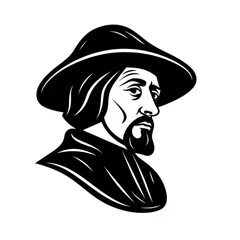PROLOGUE TO THE CANTERBURY TALES
Geoffrey Chaucer was a versatile poet of fourteenth century. He was called the first great novelist, dramatist, artist and character delineator. He rendered undeniable services to the English literature in general and English language in special.
Choose one of blue
Titles, Click it, Copy the Paragraphs,
Add them here and
Enjoy a full Assignment
Chaucer's Realism -
Chaucer's Humanism
Chaucer as a Medieval Poet
- Chaucer's Humour
Chaucer as a Representative of 14thCentury
Chaucer's Art of Characterization
Chaucer has introduced ‘The Knight’ in the very beginning of his
description on the company of 29 people so that the other characters may be
judged in comparison with this most perfect character. Knight is the
representative of the whole knighthood of chivalric spirit of the age;
“A Knyght ther was, and that a worthy man,
That fro the tyme that he first bigan,
To riden out, he loved chivalrie,
Trouthe and honóur, fredom and curteisie.”
The knight was not only
brave but also wise. He is the most complete character in Chaucer’s book. He
appears to be an ‘Individual’ when Chaucer gives personal details about him;
“Of fustian he wered a gypon,
Al bismótered with his habergeon.”
Chaucer has introduced as
many as eight characters related to church. All of them show that the church of
the age had become a bed of profligacy and luxury and Chaucer has made them a
special butt of ridicule. Chaucer does not taunt or rebuke them for their
malpractices and wrongdoings rather he touches them with light humour using
irony and satire.
We are introduced with a
female character ‘Prioress’. She should have no concern with mundane and
worldly affairs but she takes special pain to look like an aristocratic lady;
“At mete wel y-taught was she with-alle,
She leet no morsel from hir lippes falle.”
Chaucer gets a chance to
present …………….. elements when we are informed that;
“She was so charitable and so pitous,
She wolde wepe if that she saugh a mous,
Kaught in a trappe, if it were deed or bledde,
Of smale houndes hadde she, that she fedde.”
Monk is another
ecclesiastical character. His character appears to be ………….. when Chaucer
provokes our laughter by apprising that a religiously sticken character is not
ready to accept a famous precept which says;
“That seith that hunters ben nat hooly men,
Ne that a monk, whan he is recchelees,
Is likned til a fissh that is waterlees.”
Another religious
character ‘Frair’ has been dealt with ironic touches. He is a serpent in the
guise of a saint. The readers get impressed with his deeds of kindness when we
are informed that;
“He hadde maad ful many a marriage,
Of yonge wommen at his owene cost.”
But sooner they are
disillusioned as Chaucer becomes bold enough to add his
voluptuous intentions behind this so-called virtuous act. Chaucer
bluntly says that he used to deflower the bachelor girls a day before their
marriage whom he used to oblige with dowry.
Pardoner and summoner are
complete rogues. They both befool the people and loot them in their peculiar
ways. Their faces resembled with their deeds. Summoner could easily ‘Pull a
fynch’ which means that he knew the art of how to trap a girl to snatch her
virginity.
The shocking stage of
medical profession becomes evident when Chaucer informs that the ‘Doctor’ takes
much pain in heaping up money. He has no concern with what Bible says;
“He kepte that he wan in pestilence,
For gold in phisik is a cordial,
Therfore he lovede gold in special.”
Another female character
in the company was ‘Wife of Bath’. Chaucer give a …………… touch to her character
when he apprises that she is the representative of boisterous sexuality;
“She was a worthy womman al hir lyve,
Housbondes at chirche dore she hadde five.”
She was an aristocratic
lady. She knew how to sew cloths. She had a desire for a husband at sixth time
if she finds an amiable young bachelor. Chaucer adds that it was so because
‘Gat-tothed was she’.
Reeve was a very cunning
fellow in the company. He was so clever that he gives money to his master out
of his own money. Such were shocking conditions of 14th century England and
Chaucer makes the fullest use of the situation to amuse his readers.
In a nutshell, Chaucer was
great …………. writer. His characters emerge before the readers’ eyes and they
feel riveted to his poetry. He was a perpetual fountain of good sense.

No comments